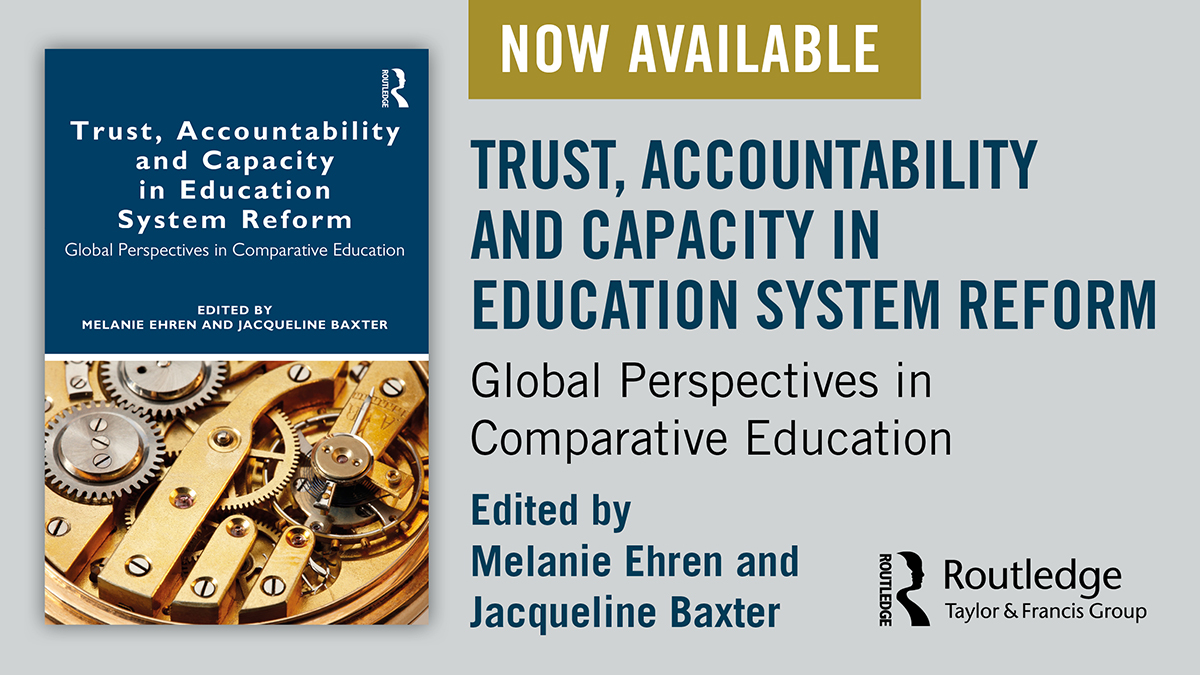Can school inspections promote trust?
By Melanie Ehren
This past year I have been fortunate to work in both Chile and South Africa, two countries with high inequality where school inspections are encountered with high levels of trust. In Chile, the Quality Agency is viewed as instrumental to a climate of competition, league tables and naming and shaming of schools; in South Africa, the term ‘inspection’ sparks memories of the Apartheid regime and subjugation to White ruling. As both countries are aiming for a more supportive role of inspection and monitoring to improve schools, a key question is how these agencies can regain or build trust in their evaluation of schools.
Building trust is one of the hardest tasks of an Inspectorate as their core activity of control and monitoring seems to assume a position of distrust in finding potential underperformance and wrongdoing in schools. Evaluating the quality of a school, particularly in the context of high stakes creates opposing interests where the school tries to ensure a good outcome and may game the evaluation to ensure such outcome, while the Inspectorate’s job is to accurately assess the quality of the school. Regaining trust when it was lost adds another layer of complexity as suspicion enters the relationship and people who are suspicious of their counterpart tend to interpret their actions and behaviour unfavourably. Head teachers are for example more likely to weigh an inspector’s comments on the school organisation as criticism and judgement of their lack of professionalism instead of helpful advice aimed to support improvement.
Trust of schools in the inspector and the agency and process of inspection is however important as it allows a constructive conversation about how to improve education where teachers and head teachers feel safe to discuss concerns or ask for advice. How then can inspectors and their agency ensure they are trusted by those they inspect?
Trust research situates the question first at an interpersonal level where a person is more likely to trust someone else who is competent, benevolent and acts honestly and with high integrity. Following this definition of trust (see Mayer, 1995), teachers and head teachers would trust inspectors who are competent in understanding and evaluating the qualities of their school (both positive and negative), act in their best interest by discussing ways in which the inspection can support the improvement of the school and follow a clear and transparent procedure when evaluating the school with opportunities to deliberate on, and discuss findings during the visit.
As most schools would not personally know their inspector beforehand, trust is also informed by the reputation of the Inspectorate (e.g. ‘hearsay’ and inspection experiences of peers in other schools), and the procedures they have in place that will inform schools of how the inspector will evaluate their school and potential consequences of their judgements. This kind of ‘institutional trust’ is fundamental to the effective functioning of government agencies (see Rothstein, 2013; Levi, 2003) as trusted organisations have higher legitimacy and institutional trust inspires collaboration and trust-relations among people at the interpersonal and inter-organizational level. Rebuilding trust thus requires both a highly skilled and trustworthy cadre of inspectors, and an organisational context with a clear and transparent set of procedures for selecting and constraining the (work of their) inspectors, procedures that ensure that inspectors are competent, credible, and likely to act in the interest of those being asked to trust the institution (schools as well as the wider public). The inspection framework and standards for the evaluation of schools and consequences of inspection judgements are an important element of those procedures. These standards need to allow inspectors to come to an accurate judgement on the school’s quality that will help the school to improve learning outcomes of their student population, while also being fair in taking into account the context in which the school is operating (e.g. high levels of deprivation that may constrain student learning) and allowing the school a period of time to improve (with additional support) before instating a set of punitive sanctions. Only when inspectors and the process of inspection is seen as competent, benevolent and of high integrity will schools trust inspectors and actively engage in their evaluation. Inspections in a context of distrust is a waste of time and money as it is unlikely to either lead to an accurate judgement or lead to improvement.
